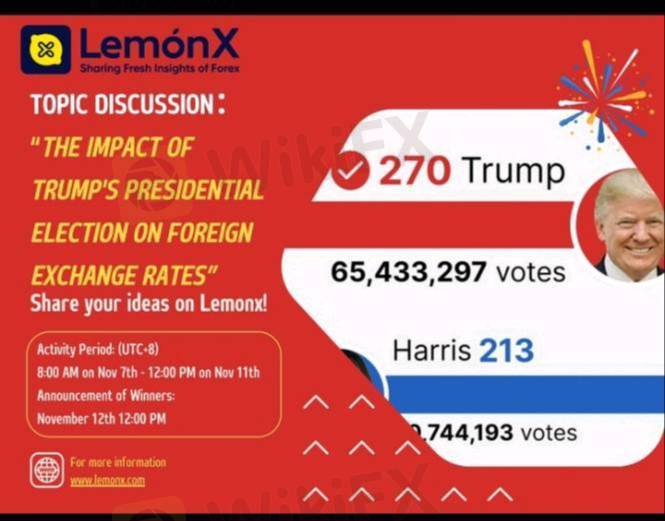
2024-11-07 22:04
Na indústriaimpact of Trump election on stock Trading
The election of Donald Trump as President of the United States in November 2016 had a significant impact on stock trading and financial markets, both in the immediate aftermath and over his presidency. Here are some key points regarding that impact:
### Immediate Reaction to the Election
1. **Post-Election Rally**: Upon Trump's election, markets experienced an immediate rally. The Dow Jones Industrial Average jumped around 1,000 points in the days following the election, driven by investor optimism about pro-business policies, tax cuts, and deregulation that the Trump administration was expected to implement.
2. **Sector-specific Gains**: Certain sectors benefited more than others. For example, financial stocks surged on expectations of deregulation, while industrial and energy stocks also saw gains due to Trump's focus on infrastructure spending and fossil fuels.
3. **Volatility**: Despite the initial rally, the election outcome contributed to heightened market volatility, as investors reacted to the uncertainty surrounding Trump's policies, trade relations, and overall governance style.
### Key Policies and Their Market Impact
1. **Tax Cuts and Jobs Act**: In December 2017, Trump signed a major tax reform bill that lowered corporate tax rates. This led to increased corporate profits, which in turn contributed to stock market gains, particularly for large-cap corporations.
2. **Deregulation**: The Trump administration rolled back numerous regulations across industries, including finance and environmental sectors, which was generally viewed positively by the markets, particularly by businesses that faced the burdens of compliance.
3. **Trade Policies**: Trump's trade policies, including tariffs on China, created uncertainty and volatility. While some sectors, like steel and aluminum, benefited from protectionist measures, others, particularly those reliant on global supply chains, faced challenges. The markets frequently reacted to news related to trade negotiations.
4. **Monetary Policy Relations**: The relationship between the Trump administration and the Federal Reserve also influenced stock trading. Trump's critiques of Federal Reserve interest rate hikes led to expectations about future monetary policy adjustments, affecting market sentiment.
### Overall Performance During Presidency
1. **Bull Market**: The stock market experienced substantial gains during most of Trump's presidency, with the S&P 500 significantly increasing. However, these gains were punctuated by
Gostar 0
Daddy girl
Trader
Discussões populares
Análise de mercado
Brasileiros FX
Análise de mercado
Brasileiros no FOREX
Análise de mercado
Don't buy Bitcoin now! Look at my review and description in the print!
Análise de mercado
análises do mercado financeiro ao vivo confira
Na indústria
Não consegui sacar meus peofits
Na indústria
Não é possível retirar
Categoria do mercado

Plataforma

Exibições

IB

Recrutamento

EA

Na indústria

Mercado

Índice
impact of Trump election on stock Trading
 Nigéria | 2024-11-07 22:04
Nigéria | 2024-11-07 22:04The election of Donald Trump as President of the United States in November 2016 had a significant impact on stock trading and financial markets, both in the immediate aftermath and over his presidency. Here are some key points regarding that impact:
### Immediate Reaction to the Election
1. **Post-Election Rally**: Upon Trump's election, markets experienced an immediate rally. The Dow Jones Industrial Average jumped around 1,000 points in the days following the election, driven by investor optimism about pro-business policies, tax cuts, and deregulation that the Trump administration was expected to implement.
2. **Sector-specific Gains**: Certain sectors benefited more than others. For example, financial stocks surged on expectations of deregulation, while industrial and energy stocks also saw gains due to Trump's focus on infrastructure spending and fossil fuels.
3. **Volatility**: Despite the initial rally, the election outcome contributed to heightened market volatility, as investors reacted to the uncertainty surrounding Trump's policies, trade relations, and overall governance style.
### Key Policies and Their Market Impact
1. **Tax Cuts and Jobs Act**: In December 2017, Trump signed a major tax reform bill that lowered corporate tax rates. This led to increased corporate profits, which in turn contributed to stock market gains, particularly for large-cap corporations.
2. **Deregulation**: The Trump administration rolled back numerous regulations across industries, including finance and environmental sectors, which was generally viewed positively by the markets, particularly by businesses that faced the burdens of compliance.
3. **Trade Policies**: Trump's trade policies, including tariffs on China, created uncertainty and volatility. While some sectors, like steel and aluminum, benefited from protectionist measures, others, particularly those reliant on global supply chains, faced challenges. The markets frequently reacted to news related to trade negotiations.
4. **Monetary Policy Relations**: The relationship between the Trump administration and the Federal Reserve also influenced stock trading. Trump's critiques of Federal Reserve interest rate hikes led to expectations about future monetary policy adjustments, affecting market sentiment.
### Overall Performance During Presidency
1. **Bull Market**: The stock market experienced substantial gains during most of Trump's presidency, with the S&P 500 significantly increasing. However, these gains were punctuated by
Gostar 0
Também quero comentar.
Perguntar
0Comentários

Ainda não há comentários. Faça o primeiro.

Perguntar
Ainda não há comentários. Faça o primeiro.